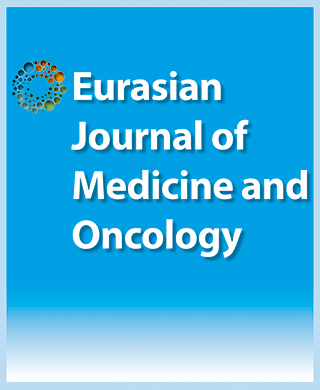

Evaluating the Effectiveness of N-Acetylcysteine in the Prevention of Cisplatin-Induced Nephrotoxicity: A Randomized Controlled Clinical Trial
Noor ul Ain Azam1, Fauzia Abdus Samad2, Abdus Samad Syed31Department of Medical Oncology, Fauji Foundation Hospital, Rawalpindi, Pakistan, 2Department of Medical Oncology, Foundation University Medical College, Defense Avenue, DHA Phase-I, Islamabad, Pakistan, 3Department of Radiation Oncology, Combined Military Hospital, Lahore, Pakistan,
Objectives: Nephrotoxicity is a major and dose-limiting side effect of cisplatin chemotherapy. There are conflicting reports in the literature regarding the possible benefit of N-acetylcysteine (NAC) for the prevention of cisplatin-induced nephrotoxicity (CINT). The purpose of this study was to determine the incidence of cisplatin-induced nephrotoxicity in our population and to evaluate the impact of NAC on the development of CINT. Methods: This was a single-centre, two-arm, parallel, open-label randomized controlled trial conducted at the Medical Oncology Department of Fauji Foundation Hospital, Pakistan. Female patients with adequate baseline renal function who were scheduled to receive cisplatin-based chemotherapy were recruited for the trial. Those in the intervention (NAC) arm (n=35), in addition to the standard intravenous hydration protocol, received oral N-acetylcysteine 1200 mg starting 1 day before chemotherapy until 5 days after the chemotherapy infusion. Patients in the control arm (n=35) only received standard intravenous hydration. This protocol was followed for four consecutive cycles of cisplatin. Serum creatinine and blood urea nitrogen were serially measured. Creatinine clearance or estimated glomerular filtration rate (eGFR) was calculated by the CKD-EPI formula. Cisplatin-induced nephrotoxicity was defined as ?25% decrease in eGFR from baseline value. Results: Baseline characteristics were comparable between both arms. Out of 70 patients, 25 (35.71%) developed cis platin-induced nephrotoxicity. 11 of 35 patients (31.43%) in the NAC arm and 14 of 35 patients (40%) in the control arm developed cisplatin-induced nephrotoxicity at the end of 4 cycles of cisplatin chemotherapy (p-value=0.51). A com parison of both groups across 4 chemotherapy cycles was done, and the increase in serum creatinine and subsequent decline in the patientís eGFR was found to be less pronounced in the NAC arm. Nevertheless, the difference between both arms was found to be statistically insignificant. Conclusion: Oral N-acetylcysteine in a dose of 1200 mg/day when given in addition to the standard hydration protocol does not appear to have any significant beneficial role in the prevention of cisplatin-induced nephrotoxicity. Studies on an inclusive population set and with a longer follow-up are suggested to determine if NAC has any substantial long term effect on cisplatin-induced renal toxicity. Keywords: Cisplatin, N Acetylcysteine, nephrotoxicity, prevention, randomized controlled clinical trial
Cite This Article
Azam N, Samad F, Syed A. Evaluating the Effectiveness of N-Acetylcysteine in the Prevention of Cisplatin-Induced Nephrotoxicity: A Randomized Controlled Clinical Trial. EJMO. 2024; 8(3): 302-310
Corresponding Author: Noor ul Ain Azam



